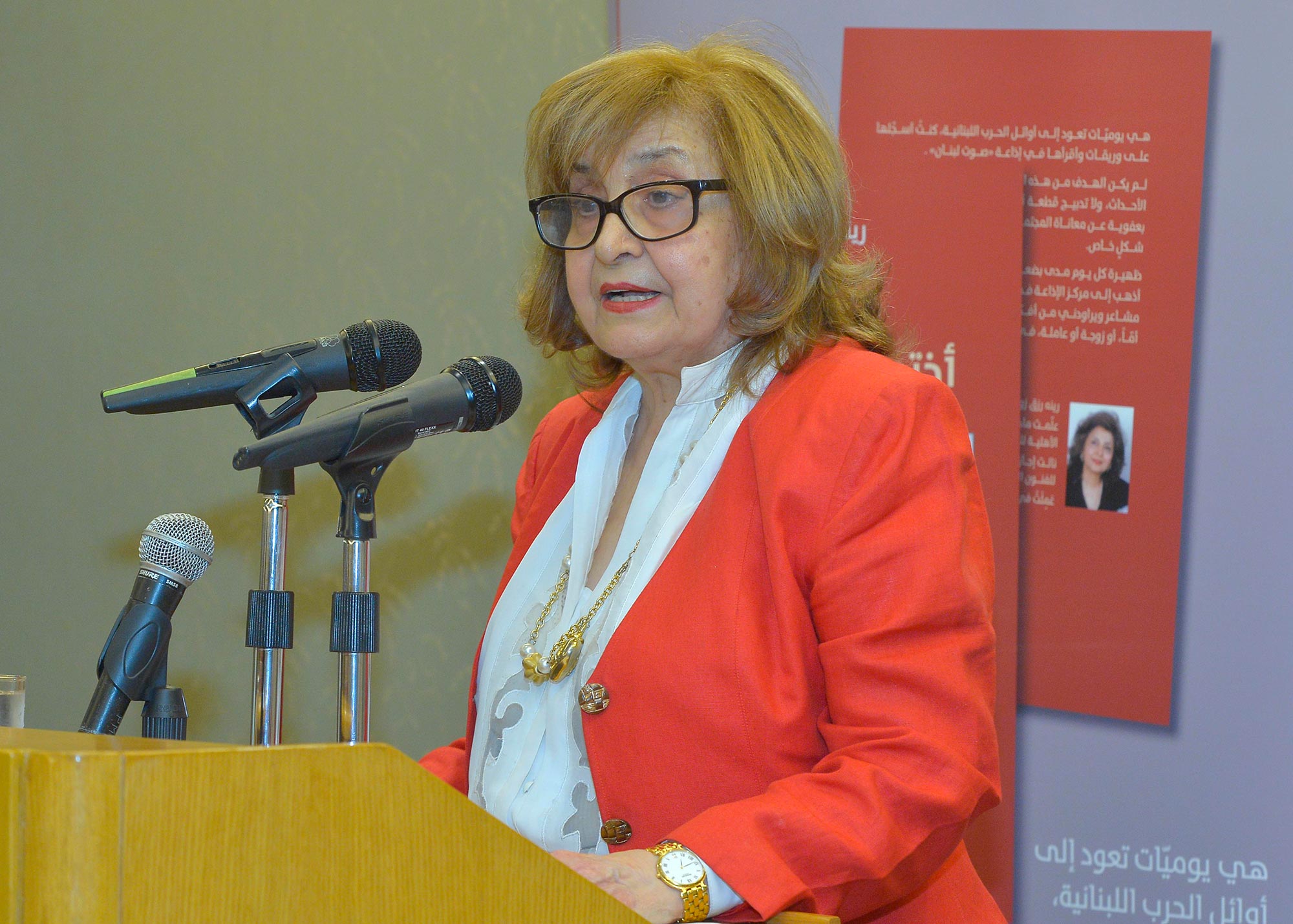
In a friendly get-together at ‘Le Gabriel’ Hotel – Achrafieh and in the presence of many prominent cultural and social figures, including H.E Nayla Moawad, H.E Leila El Solh Hamadé, Mrs. Mona Hrawi, Ambassador Georgine Mallat, Princess Hayat Arslan, Dr. May Chidiac, and Mrs. Lubna Obeid; Renée Rizk presented her book “My Sister the Citizen”.
The book, which includes selections from episodes she has presented on Voice of Lebanon Radio during the Lebanese Civil War (1975-1976), is dedicated to the Lebanese woman: whether she is a wife, a mother, a daughter or a sister, a working woman, wherever she lived in Lebanon, whatever her loyalties were. The book is meant to assert that the Lebanese woman has held national responsibilities and contributed to safeguarding human values along with men.
In her speech, Renée Rizk said: “I’m so delighted that together after four long decades we get to remember and remind others of the sacrifices Lebanese women offered. After all, Lebanese women have contributed to safeguarding our country, and they had an active role in the historical challenge of setting a unique civilized Lebanon on the foundations of diversity, respecting the right to be different, and equality among people. This book bears the title “My Sister the Citizen” which I chose back in the days to address the Lebanese woman, no matter where she lived or what her loyalties were…”
Then, Mona El Khawli, chief executive of the National Union of the Christian Committee for Young Women, said: “The message behind “My Sister the Citizen” reached us through our radios defying barricades and cruel snipers to unify the members of the Christian Committee for Young Women; a committee which isn’t Christian in the sectarian sense of the word, but in the spiritual, moral, and human sense.”
The get-together was facilitated by Milad Hadchiti who pointed out the important role this book plays in informing people about what had happened during those days. Hadchiti believes that the book would form a bridge connecting different generations of Lebanese and would shed the light on this collective experience, notably the active contribution of women.
Copies of the book were distributed as gifts to the audience.